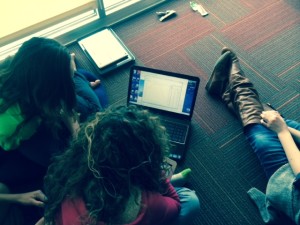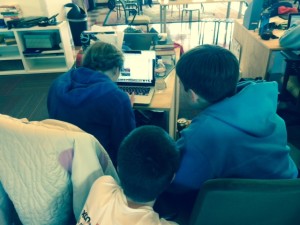What do our young heroes need the most in science:
- A specialized vocabulary to discuss a technical subject clearly and intelligently;
- The processes, formulas or equations to solve a clearly defined problem; or
- The curiosity and tenacity to tackle a wickedly open ended question?
In a way, these three types of learning track our promises to parents:
- Learn to know;
- Learn to do;
- Learn to be.
Is it better to learn about velocity, acceleration and gravity from watching skill based videos; experimenting for hours with deeply immersive simulations or learning through hands-on trial and error?
We’ve struggled to get Eagles to engage with pre-formed problems, which haven’t piqued their imaginations, even when disguised as demonstrations.
So we gave up, and in desperation posed a wickedly open ended challenge:
- Use a tennis ball machine to shoot a ball straight up in the air.
- Using only this experiment, predict how far a tennis ball will fly if the machine shoots a ball at 30, 45 and 70 degrees from the horizontal.
Suddenly, the teams were engaged. Some Eagles dove straight into algebra and geometry; others searched for a simulation that would help; some just kept plugging numbers into formulas hoping the answer would magically appear.
Before long, it was clear that there were three problems plaguing the teams:
- A failure to define the problem and goal;
- Not knowing how to find and use a process, framework, formula or tool to help; and
- Interpersonal conflicts between team members.
The most damaging of these was the failure to define the problem and goal. For many Eagles it was fire, ready, aim. The second biggest problem was interpersonal conflicts between team members. A distant third was the difficulty of solving the problem, once properly defined.
Isn’t that the case in real life? Aren’t most colossal mistakes usually a failure to recognize the real problem? Aren’t the biggest blunders often a result of talking past each other? How often have arguments between team members doomed a project?
So at least for now, open ended problems seem to deliver the most powerful learning. Even if it is a frustrating and messy process for the Guides.

